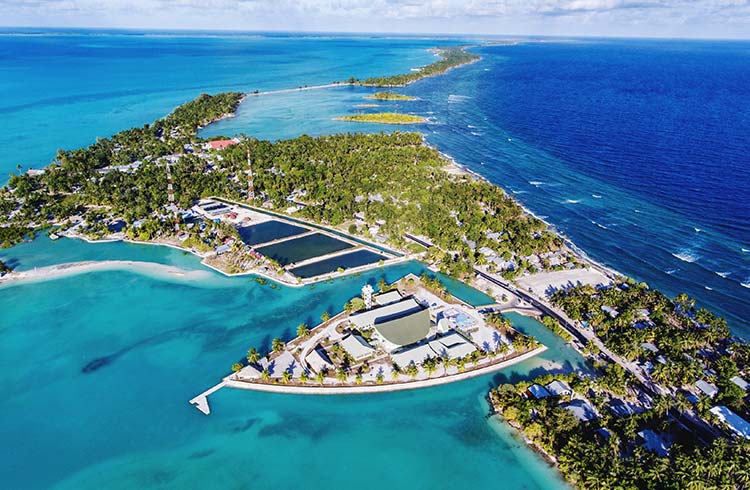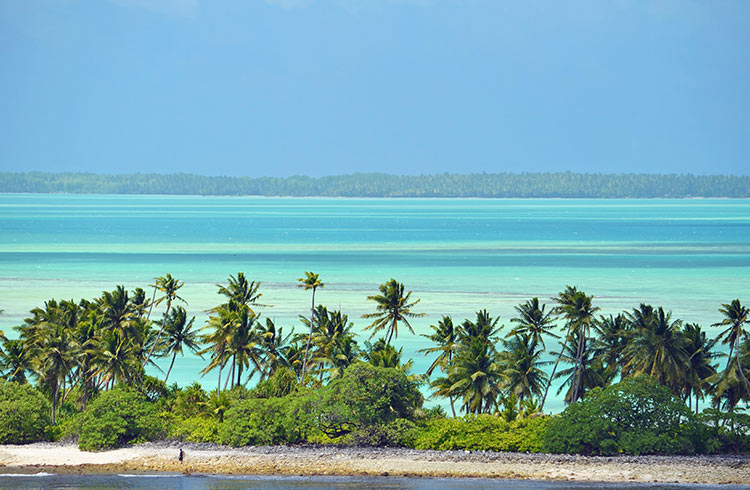How to Stay Healthy While Traveling in Kiribati
Due to limited infrastructure, sanitation and hygiene, getting sick in Kiribati is a real concern for travelers. Find out about water and food quality, pollution and how to avoid tropical diseases.
 Photo © Getty Images/Raimon Kataotao / EyeEm
Photo © Getty Images/Raimon Kataotao / EyeEm
Water quality
Only 30 percent of residents living in South Tarawa (Kiribati's major population center) own a flush toilet according to recent statistics. Those who do not, use the lagoon as their bathroom.
So, you can expect to see suspicious brown objects and other gross waste floating around in this body of water. This water never really gets washed out to sea, either, leaving the waste to float and causing a bad smell to permeate the island. Do not, under any circumstances, take a dip in this lagoon.
Some travelers say North Tarawa is safe to swim in. Even though the locals there also use the water as their toilet, the population is considerably smaller, so less waste gets in the water.
You won't be as in danger of seeing human waste in other bodies of water surrounding Kiribati, but you are at risk for getting pulled to sea by strong rip currents, particularly near the reef areas.
Good food
If you want to eat in Kiribati, you have few certifiably sanitary options. Many people subsist largely on rice to avoid illness developing from spoiled produce, which is scarce anyway, or bad meat.
Much of the food in the country is imported in cans or packaged form, so the quality leaves a bit to be desired. But travelers report that you can find the basics.
Fish is the prominent source of local food, but don't eat fish that comes out of the South Tarawa lagoon for obvious reasons.
You can find more Western-style eats at hotels like Marys and the Otintaai and Chinese food at a number of restaurants.
You'll want to boil all water when in Kiribati and thoroughly cook vegetables and peel all fruit.
All of that being said, Kiribati does have strict quarantine protocols for food, plants and animal products, all of which must be declared upon arrival.
Disease and illness
Some illnesses to watch out for on Kiribati are mosquito-borne dengue fever, hepatitis A and ciguatera, a type of food poisoning sometimes caused by fish.
Mosquitoes flit about the island, and as insect repellent is not sold locally, bring your own (same goes for sunscreen).
Treat all cuts, bites or rashes immediately to avoid infection. If you do need medical attention, expect poor facilities. Anything beyond a basic ailment may require evacuation to a nearby country or your home country.
Pollution and rubbish
Pollution is high in Kiribati, partly because of poor sanitation and partly because nearly 85 percent of the locals smoke. In addition to human waste, you'll see dog waste and broken glass or metal on some beaches. No barefoot strolls on the shore for you.
Related articles
Simple and flexible travel insurance
You can buy at home or while traveling, and claim online from anywhere in the world. With 150+ adventure activities covered and 24/7 emergency assistance.
Get a quote
6 Comments
Why would anyone want to go here? There are thousands of islands that aren't in the middle of the pacific that are much better for tourism.
No mention of radioactivity and history of atomic testing?
Neglected islanders, interesting world we live in !
that is crazy that people live like that. looks beautiful, in pictures, it’s a shame, the reality there. A bit too secluded anyway.
Wow...at first it looked like a Paradise (I don't like lots of crowds of people, so this looked great)....then I read where the beautiful waters are fouled, and water needs boiling, hard to do if you are staying at a little motel/hotel. Guess I'll look elsewhere. I do hope they "clean up" their conditions for their own sake someday.
It sounds like they want to make this place sound so bad. Maybe they don’t want people to go. Best way to stop people is fear of sickness and disgust.